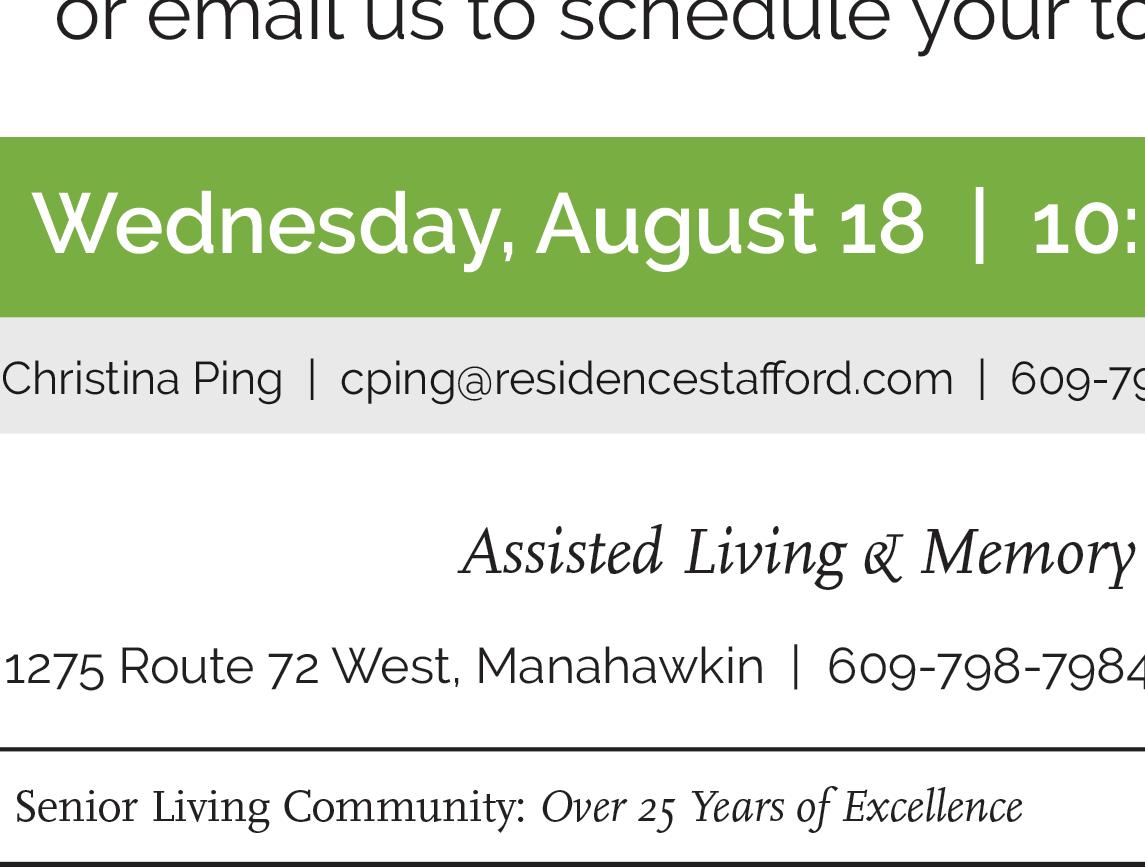
5 minute read
WWII - See
Continued From Page 1 to the house,” Ron Negra said. His mother will be 102 in November. Agnes said what inspired the book had its origins from her childhood. Her father’s boat capsized “and they said my dad was missing and as I kid I didn’t understand what was happening, but a few weeks later my father came to the door. He had been rescued by some people trawling in the Atlantic off of Boston. Thank God he came back home. I always thought of that.” Remembering how it felt not to know what became of your loved one led her to take action years later during World War II. “I was listening to the news every night when World War II broke out. “I would send postcards to the families. My brother Johnny was missing in action. His plane (a B-17 Gunner) was hit and he was missing and I was hoping to hear his name,” she said. “The next week I started getting cards from some of the people I wrote to. ‘Thank you for listening and giving us hope that our son is okay.’” “Her letter was the fi rst word that their son was okay or their husband or brother,” Ron Negra said. “She never expected to get responses back. They kept coming in and she would read them and feel the emotions that people had expressed. They had anxiety but of all the emotions they had, they had hope.” “They would say your letter gave us hope that their loved one was alive,” her son added “A lot of the letters she received described the person they were concerned about.” Agnes would learn about the person’s military assignment, family life and other details so the individual became more known to her. Ron’s wife Valerie Negra noted that some of the prisoners themselves got to speak during the broadcast providing their name and home town on Radio Berlin. Agnes said she was even provided information from those who wrote her about other soldiers who they hoped she would write to provide the same kind of comfort her letters provided them. During this time, Ron’s dad was going into the Army. “She was warned by the government to not give out any information as this was all Nazi propaganda that was coming over the air. The country was so split at the time of going into the war they wanted us not to be in the war and the Nazis knew this,” Ron Negra said. He added. “when we entered the war, the country was on edge and told ‘watch what you hear don’t believe everything.’ The Nazis were trying to convince the people of the United States that they were good people. ‘We are taking care of your prisoners and we are going to let them get on the air now so you could hear their voice to let you know they are alive.’ They were trying to get on the good side of America.” The book includes the responses her mother-in-law received which are now in a special scrap book. The book also includes old photos of Ron, his sister and his mother that feature the short-wave radio used in the background. The letters she received were in her attic for decades. “I said to her ‘We never heard about this mom.’ So I said start from the beginning because I had no idea what she was talking about. She told us the story and we started reading the letters and they were very emotional. I decided I wanted to document this for her 100th birthday in 2019,” Ron Negra said. Ron’s father August had joined tried to join Navy when there was a draft in 1940 but was rejected because he previously had malaria. After Ron’s sister Patty was born in 1942 he was then contacted by the Army and became part of the 94th Infantry and was wounded at the Battle of the Bulge. Ironically, he was missing in action. “Mom continued to listen on the short wave radio hoping she’d hear my father or my father’s brother-in-law John who was also missing. What happened (to his uncle) was he was captured, escaped and was rescued by the Yugoslavian underground,” Ron Negra said. He added that his father had been wounded and left for dead. “The Belgian underground rescued him and hid him. He was pretty badly injured and they got a doctor to look after him in Belgium. They got him back to the American lines and brought him to a newly formed fi eld hospital in France. My father tried to get word to my mother that he was alive.” That notice reached Agnes in a letter from a French nurse. The letter had to be translated. “She brought it to my father’s high school French teacher Helen Gerdnick and that is how she found out that my father was alive,” Ron Negra added. He would visit his mother every day and would ask her questions about the details of what she had done. “She said she did this to give people hope. We were living in Nutley at that time. We had a birthday celebration and people started reading the book and they said to mom ‘this is a great story you should get this published.’ A woman sitting on the beach next to Val was inquiring what we were doing while we were on vacation and she explained that she had a friend who was a book publisher and that she’d be very interested in this story,” Ron Negra added. In coming up with a title for the book he said to his mother, “you used a short wave radio and what you were doing was expressing hope that they would see their loved one again and that is how it became “Waves of Hope.” For further information about the book, visit ronaldedwardnegra.com
Check out Micromedia Publications’ website, jerseyshoreonline.com






